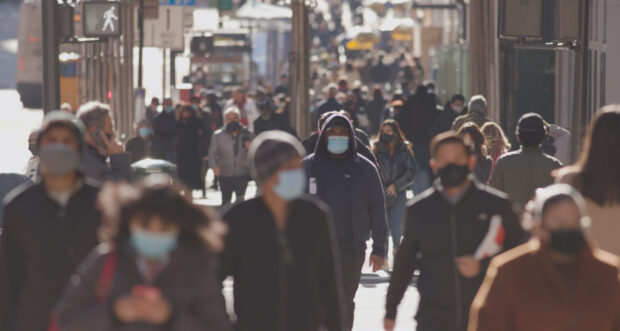Having recently marked the one-year anniversary of the COVID-19 pandemic, it seems like an opportune time to consider how the pandemic has impacted the insurance industry. While business interruption lawsuits (totaling more than 1,500 as of March 31, 2021) have dominated the headlines, the pandemic’s effects stretch far beyond BI claims. Indeed, the pandemic has impacted virtually all aspects of the industry, and those impacts will likely alter the insurance landscape for years to come.
Here are some of the less-publicized, but nonetheless significant, ways in which COVID-19 has affected the business of insurance.
Auto and Other Lines
In the personal auto line, claim frequency plummeted due to the lockdown. Anyone who ventured out during the first six months of the pandemic experienced largely abandoned streets and highways that often gave off a post-apocalyptic vibe. Those open roads, however, apparently encouraged many to drive faster and less carefully. Thus, while claim frequency dropped dramatically, claim severity increased. According to Insurance Information Institute estimates, for example, property damage frequency was down more than 30 percent while severity was up by almost 20 percent.
Abrupt changes to driving behaviors (people staying home and not driving to/from school or work) also impacted personal auto premiums. Drivers across the country received premium rebates because of the dramatic reduction in driving. The American Property Casualty Insurance Association estimates that insurance companies have refunded more than $14 billion to policyholders. But regulators, consumer advocates and class action attorneys claim that is not enough. California’s insurance commissioner is pushing carriers to double the refunds they have made, and he is requiring them to show how they intend to provide additional refunds. A number of insurers have also been hit with proposed class action lawsuits claiming that they unfairly profited from the pandemic.
Other lines of coverage experienced drastic reductions in premium as a result of lockdowns. Workers compensation, travel, event cancellation and trade credit were among the lines hit hardest. And while reduced claims helped offset the impact of reduced premium in some lines, like workers comp, other lines suffered the double whammy of reduced premiums and increased claims. In the global event cancellation market, which generated average annual premiums of $500-$600 million pre-pandemic, COVID-related losses could reach as high as $6 billion. One event alone—the 2020 Summer Olympics in Tokyo—could produce losses of $2 billion to $3 billion if the Olympic Games, rescheduled for Summer 2021, are ultimately canceled.
How Behaviors Changed
COVID lockdowns have also led to some interesting, but entirely logical, changes in human behavior. Dog ownership, for example, spiked in 2020. While that could provide growth opportunities for pet insurance, the industry might also see an increase in dog-related liability claims, particularly with so many first-time owners taking hold of the leash. In 2019, dog bites and other dog-related injuries resulted in nearly $800 million in losses for homeowners insurers. The industry may see a bump in losses in 2020 and 2021.
Carriers are likely to see new COVID-related products liability claims. From hand sanitizers and disinfectants to masks and other protective equipment, manufacturers and distributors sold many products that were claimed to prevent or reduce the risk of infection. COVID tests and various treatments were also heavily marketed to consumers. To the extent plaintiffs’ attorneys can develop evidence showing that these products did not function as promised, were defective, did not contain proper warning or perhaps were fraudulently misrepresented, products liability suits will proliferate.
The pandemic has affected the life, health and disability business in many ways. Obviously, life insurers have experienced an increase in claims due to “excess deaths” attributed to COVID-19. But lines such as long-term care and disability have been impacted as well. Long-term care insurers have experienced reduced claims (due, in part, to increased deaths) and a higher rate of terminations for such insurance as economic hardships have reduced disposable income. In the disability space, rising COVID-related claims were offset by decreased claims arising from injuries and surgeries as policyholders hunkered down at home and canceled medical appointments. And scientists and medical professionals are still unsure about the potential long-term effects of COVID. Anecdotal evidence indicates that some COVID patients have experienced muscle pain, headaches and brain fog months after testing positive. If such chronic symptoms persist and become more widespread, health and disability lines could be impacted. Chronic symptoms would likewise affect workers comp.
How Underwriters Changed
The pandemic has also changed the way insurers do business, from underwriting to claims. While digitization was an industry priority before COVID, the pandemic accelerated the transition. As personal interaction was cut off, insurance providers scrambled to retain business and expand market share through virtual communications. On the claims side, carriers experienced similar obstacles. On-site accident investigations, independent medical exams, home inspections and in-person interviews became difficult if not impossible. Consequently, alternative approaches were employed for both underwriting and claims, and tools such as risk modeling, drones and mobile apps have taken on greater importance.
As insurance professionals and their customers get used to the new digital reality, it’s unlikely the industry can go back to the old ways of doing business.
Finally, the pandemic has forced the industry to re-examine its role in future pandemics or other “black swan” events.
Insurers are an easy target in crises, and the pandemic was no exception. Regulators, consumer advocates and, to some extent, the press have jumped on carriers for rejecting BI claims. They focus on the plight of small businesses that have been devastated by COVID and portray carriers as relying on cryptic policy language to avoid paying claims. While the courts (at least in the U.S.) have largely come down on the side of insurers, the potential reputational harm to the industry cannot be discounted.
Carriers need to reconsider marketing materials and policy language so that it is very clear what coverage they are and are not providing. Insurers must also consider their role as global corporate citizens and help develop solutions for future events.
Chubb, for example, has proposed a private-public partnership program to protect small businesses in the event of another event resulting in widespread lockdowns. Lloyd’s of London is also developing a program, ReStart, which is similarly designed. While the industry cannot solve all of the devastating effects of a pandemic, it can and should play an active role.
Nearly every industry has experienced dramatic effects of the pandemic, and the insurance industry is no exception.
For the industry, COVID’s impact has not been limited to the exposures that typically arise from a catastrophe. It has been a truly unique “black swan” event that has affected the industry in ways that will likely change the way insurers do business for years to come. But the industry appears well positioned to deal with the impacts of the pandemic and play an active role in developing solutions for future global catastrophes.
* This article was previously published by our sister publication Insurance Journal





















 Beazley Agrees to Zurich’s Sweetened £8 Billion Takeover Bid
Beazley Agrees to Zurich’s Sweetened £8 Billion Takeover Bid  Winter Storm Fern to Cost $4B to $6.7B in Insured Losses: KCC, Verisk
Winter Storm Fern to Cost $4B to $6.7B in Insured Losses: KCC, Verisk  Modern Underwriting Technology: Decisive Steps to Successful Implementation
Modern Underwriting Technology: Decisive Steps to Successful Implementation  Flood Risk Misconceptions Drive Underinsurance: Chubb
Flood Risk Misconceptions Drive Underinsurance: Chubb 

